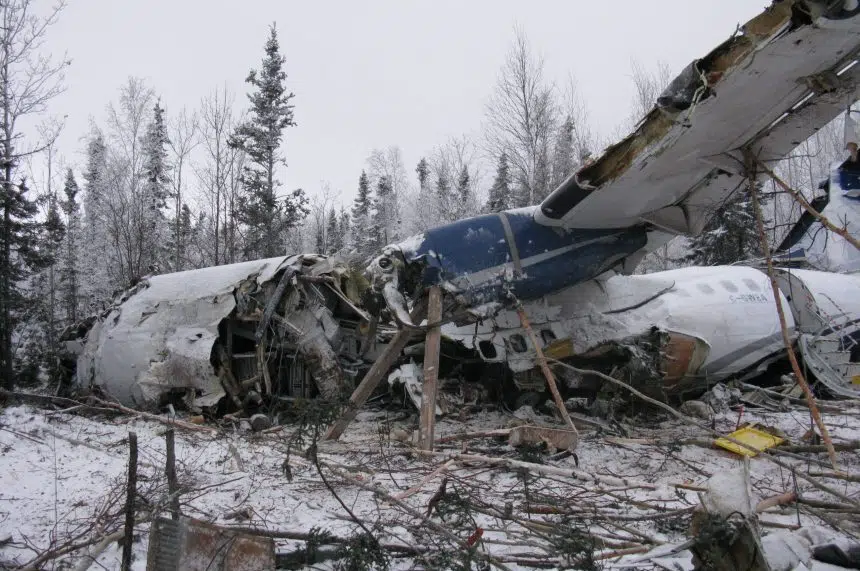The president and CEO of West Wind Aviation says the company has undergone a near-total overhaul in the year since one if its planes crashed near a northern Saskatchewan airstrip.
“But our thoughts today, mostly, are around the people who were affected by the downing of Flight 280 and, obviously, our thoughts and prayers are with those folks,” said Michael Rodyniuk
The ATR 42-320 plane went down on the evening of Dec. 13, 2017, coming to rest less than a kilometre from the airstrip where it took off in Fond du Lac, Sask., a small community located about 75 kilometres from the province’s border with the Northwest Territories.
Several of the 22 passengers and three crew members on board had to be airlifted to hospital.
Passenger Arson Jr. Fern, 19, suffered broken legs, a broken pelvis, internal bleeding and a collapsed lung. He died about two weeks after the crash.
Rodyniuk said Fern’s death was a source of sadness for everyone at the airline, but he thanked all the first responders, crew members, passengers and members of the Fond du Lac community who sprang into action and helped save lives.
“There’s so many of those types of stories that are out there and certainly — let’s not forget the heroes that were there that night.”
West Wind’s management team has been replaced since the crash, with Rodyniuk himself taking over in October as president and CEO.
“We’ve got new management in place. We’ve brought on board a retired colonel from the Air Force to oversee our operations who’s brought a great sense of discipline and process to the way that we do our business,” he said.
The federal Transportation Safety Board (TSB) issued a preliminary report in April stating that the plane wasn’t de-iced before takeoff, but had adequate fuel and that both engines were working when it went down. At that time, there was still no definitive conclusion on what caused the crash.
Rodyniuk said sub-par de-icing gear consisting of a ladder and a hand-held sprayer at the Fond du Lac airstrip has been replaced with a hydraulic lift equipped with a high-pressure spraying system that dispenses heated glycol, a chemical used in antifreeze.
He said the company also made similar changes at every other airfield where it operates.
“So there’s, literally, no place that we fly on our scheduled bases that doesn’t have a de-icing capacity that will easily de-ice the aircraft that we’ve got going in there,” he said.
Rodyniuk also conveyed the company’s thanks to the flight crew members, passengers, first responders and members of the Fond du Lac community who sprang into action.
Fond du Lac Denesuline Nation Chief Louie Mercredi issued a call in May for improvements to the community’s airstrip, saying at the time that the runway was too small to accommodate the larger planes that were increasingly being used in the north
The TSB announced it will deliver another report and recommendations Friday in Saskatoon stemming from its investigation.







